
|


"We may form free constitutions, but
our vices will destroy them;
we may enact
laws, but they will not protect us." - Lyman Beecher
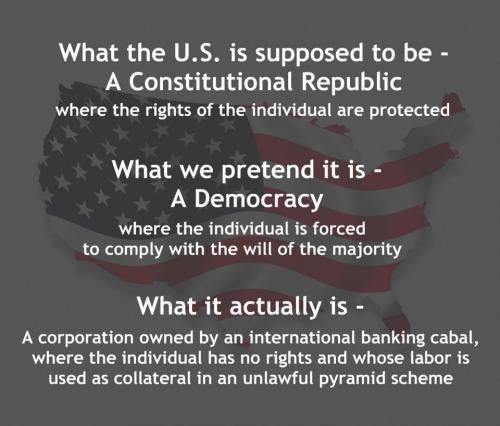
Citizens of a
self-governing society are free to
think and talk openly and critically about
issues of governance.
"When a legislature undertakes to proscribe the
exercise of a citizen's constitutional rights it acts lawlessly and
the citizen can take matters
into his own hands and proceed on the basis that
such a law is no law at all."
– Supreme Court Justice William O. Douglas

"Where is it written in the Constitution, in what
section or clause is it contained, that you may take children from their
parents and parents from their children, and
compel them to fight the battle in
any war in which the folly or the wickedness of government may engage it?"
– Daniel
Webster
"It took ~ 150 years, the Bill of
Rights reserved to the states and
the people all powers
not explicitly delegated to the federal government, to produce a
Supreme Court willing to rule
growing corn to
feed to your own chickens was
interstate commerce and could
be regulated by Congress." – David Friedman
"Entities such as corporations are legal
constructs.
As such, they have
no conscience or
inherent moral compass.
Only individuals can sense right from wrong." - Susan
Boskey
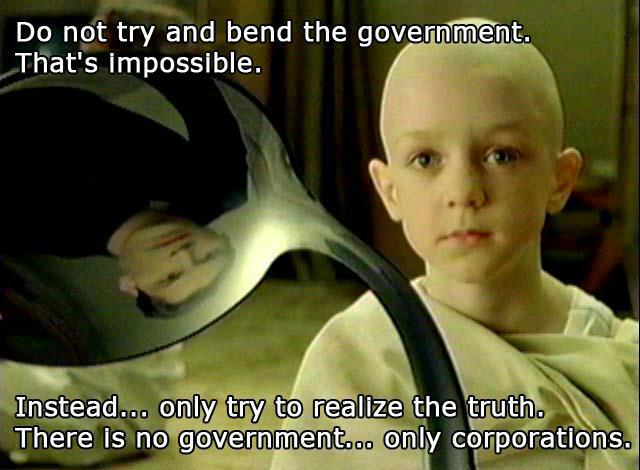
Law of the
Land
Constitution of the United States
We the
People of the United
States, in order to form a more
perfect Union, establish justice, insure
domestic tranquility, provide for the common defense,
promote the general welfare, and
secure the blessings of liberty
now and in the future, do establish this Constitution for the United States.
All legislative power shall be vested in the Congress of the United
States consisting of a Senate and a House of Representative.
The House
of Representatives shall be composed of members chosen every second year by the
People of their respective States.
A Representative shall be at least
twenty five years of age, will have been a Citizen of the United States for
seven years and be an inhabitant of the State represented.
Representatives shall be apportioned
among States according to respective population which shall be determined by
counting each free Person and indentured servant as one,
slaves as three fifths,
excluding untaxed
Indians.
The population count shall be made every ten
years.
The number of Representative shall not exceed one for every
thirty thousand, but each State shall have at least one Representative.
When vacancies happen in the representation from any State, the
executive authority thereof shall
hold an election to fill such vacancies.
House of Representative shall
choose a Speaker; sole power of Impeachment.
The Senate of the United
States shall be composed of two Senators from each State, chosen by
their respective State legislature for six years.
Each Senator
shall have one vote.
A Senator shall be at least thirty years of age, a
Citizen of the United States for nine years and be an inhabitant of the State
represented.
If vacancies happen during the recess of the legislature
of any State the executive authority may make temporary appointments
until the next meeting of the State legislature, which shall then fill
such vacancies.
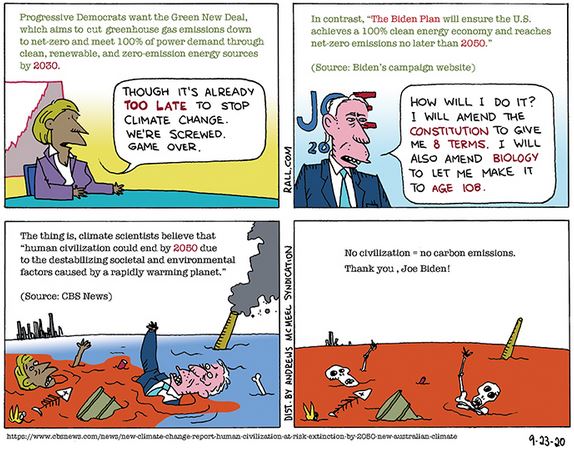
The vice president of the United
States shall be president of the Senate and have no vote.
The Senate
shall choose a president pro tempore in the absence of the vice president or
when he shall exercise the office of president of the United States.
The Senate shall have the sole power to bring an impeachment to trial
and will be under oath during
an impeacement trial.
The Chief Justice shall preside if the
president of the United States is tried.
No Person shall be convicted
without concurrence of 2⁄3 of Senators
present.
Judgment in cases
of Impeachment shall extend to removal from office and disqualification to hold
any office of the United States government.
Impeached and convicted
individuals shall be liable and subject to indictment, trial,
judgement and punishment,
according to law.
The times, places and manner of
holding elections for Senators and Representatives, shall be prescribed in each
State by the Legislature.
Congress may at any time alter such
regulations by law, except as
to the places of choosing Senators.
The Congress shall assemble at
least once in every year.
Each House shall be the judge of the
elections and qualifications of its own members, and a majority of each shall
constitute a quorum to do business.
A smaller number may adjourn from
daily business and may compel the attendance of absent members under such
penalties as each House provide.
Each House may determine the rules of
its proceedings, punish its members
for disorderly behavior, and, with the concurrence of
2⁄3, expel a member.
Each House shall keep
a journal of its proceedings, and from time to time
publish the same, excepting such
parts as may in their judgement require secrecy; the yeas and nays of the
members of either House on any question shall, at the desire of one fifth of
those present, be entered on the journal.
Neither House without the
consent of the other shall adjourn for more than three days during the session
of Congress, nor to any other place than that in which the two Houses shall be
sitting.
The Senators and Representatives shall receive compensation for
their services to be paid out of the
Treasury of the United
States.
They shall in all cases, except
treason, felony and
breach of the peace, be
privileged from arrest during
attendance at the session of respective Houses.
No Senator or
Representative shall, during the time for which he was elected, be appointed to
any civil office under the
authority of the United States.
All bills for raising revenue shall
originate in the House of Representatives; but the Senate may propose or concur
with amendments as on other bills.
Every bill passed by the House of
Representative and the Senate shall be presented to the president of the United
States before it becomes a Law.
If he approves he shall sign it, if not
he shall return it, with his objections to that House in which it originated,
which will enter the objections in their
journal, and proceed to reconsider it.
If after such
reconsideration two thirds of a House agrees to pass the bill, it shall be
sent, together with objections, to the other House by which it shall be
reconsidered and if approved by 2⁄3 of that House,
it shall become Law.
In all cases the votes of both Houses shall be
determined by yeas and nays, and the names of the individuals voting for and
against the bill shall be entered in the journal of each House respectively.
Any bill not returned by the president within ten days after being
presented to him, the same shall become a law, as if he had signed it, unless
the Congress by their adjournment prevent its return, in which case it shall
not be a law.
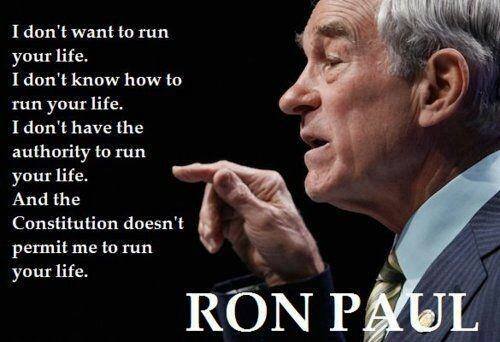
Every order, resolution, or vote to
which the concurrence of the Senate and
House of Representatives may be necessary (except on a question of
adjournment) shall be presented to the president of the United States.
The Congress shall have power
to levy and collect taxes, duties,
imposts and excises, to pay
the debts and provide
for the common defense and general welfare of the United States.
All duties, imposts and excises
shall be uniform throughout the
United States.
Congress may
borrow money on the credit of the
United States and regulate
commerce with foreign nations, among the States, and
with the Indian tribes.
The Congress will establish an uniform rule of naturalization and
uniform law on the subject of
bankruptcies throughout the United States.
The
Congress will coin money,
regulate it's value, and the
value of foreign coin, fix
the standard of weights and measure and will provide for the
punishment of counterfeiting the
securities and coin of the United States.
The Congress will establish post offices and
roads.
Congress will promote the
progress of science, by securing
to authors and inventors the
exclusive right to their
respective writings and discoveries.
The
Congress will create a court system inferior to the Supreme Court.
The
Congress will define and punish
piracies and felonies committed on the high seas, and
offenses against the law of nations.
The Congress will declare
war, grant letters of marque and reprisal, and
make rules concerning captures on land
and water.
The Congress will
raise and support armies,
but no appropriation of money for that use
shall be for a longer term than two years.
The Congress will
provide and maintain a
navy and make rules for the regulation of the land and
naval forces.
The
Congress will provide for calling forth the militia to execute the law of the
United States, suppress
insurrections, repel
invasions and provide for organizing, arming, and disciplining the militia,
and for governing them.
Reserving to the states is the appointment of
the officers, and the authority of training the
militia according to the discipline prescribed by Congress.
The Congress
will exercise exclusive legislation over a District (not exceeding ten miles
square) created by cession of particular States and the acceptance of Congress
which will become the seat of the government of the United States.
Congress will exercise
authority over all places purchased by the consent of the legislature of
the State for the erection of forts,
magazines, arsenals,
dock-yards, and other needful buildings.
Congress will make all law
which shall be necessary and proper for executing the power vested by this
Constitution in the government of the United States.
Importation of slaves to any of the States
now existing shall not be prohibited by the Congress prior to the year
one thousand eight hundred and
eight.
A tax may be imposed on importation, not exceeding ten
dollars for a slave.

The privilege of the Writ of Habeas
Corpus shall not be suspended, except in the cases of rebellion or
invasion when the
public safety may require
it.
No retroactive law shall be passed.
No direct tax shall be laid
except in proportion to the census.
No tax shall be laid
on articles exported from any State.
No preference shall be given by any
regulation of commerce to any seaport.
Vessels bound to or from one
State shall not pay duties in another.
No money shall be drawn from the
Treasury but in appropriations by law.
Expenditures of all public money
shall be published from time to time.
No title of nobility shall be granted by
the United States.
No Person holding a office shall accept a
present, office, title, of any category, from any king, prince, or foreign
state without the consent of the Congress.
No
State shall enter into any alliance or confederation; grant letters of marque
and reprisal; coin money; emit bills of credit; make anything but gold and
silver coin a tender in
payment of debts; pass any bill of attainder, ex post facto law, or
law impairing obligation of
contracts, or grant title
of nobility.
No State shall impose duties on
imports or exports, except as
may be necessary for executing inspection law, without the consent of the
Congress.
The net of all
duties shall be for the use of the Treasury of the United States.
All such law shall be subject to the control of the Congress.
No State shall keep troops or ships of war in time of peace, enter
any compact with a foreign power,
impose any duty on
tonnage, or engage in war unless in
imminent danger of actually invasions without the consent of
Congress.
The Executive power shall be vested
in a president of the United States.
He shall hold office for a
term of four years with the vice president.
They are to be elected as
follows:
Each State shall appoint a number of electors equal to the the
whole number of Senators and Representatives to which the State is entitled in
the Congress.
No Senator or Representative, or individual holding an
office under the United States, shall be appointed an elector.
The
electors shall meet in their respective States, and vote by ballot for two
individuals, of whom one at least shall not be an inhabitant of the same State.
Electors list individuals voted for, and the number of votes for each;
which list they shall sign, certify and transmit sealed to the president of the
Senate.
The president of the Senate shall, in the presence of the
Senate and House of Representatives, open all the certificates, and the votes
shall then be counted.
The individual having the greatest number of
votes shall be the president, if such number be a majority of the whole number
of Electors appointed.
In every case, after the
choice of the president, the
individual having the greatest number of votes of the electors shall be the
vice president.
Congress may determine the time of choosing electors,
and the day on which they shall vote; which day shall be the same throughout
the United States.
No individual except a natural born citizen or a
citizen of the United States at the time of adoption of this Constitution is
eligible for office of president.
Neither shall any individual be
eligible who has not attained the age of thirty five years and been a resident
within the United States for fourteen years.
In case of the removal of the
president from office, his death, resignation, or inability to discharge
the power and duties of the office,
the office of president shall
devolve on the vice president.
The Congress may by law provide for
the case of removal, death, resignation or inability, both of the president and
vice president, declaring what officer shall then act as president, and such
officer shall act accordingly, until the disability be
removed, or a president shall be elected.
The president shall
receive for his services compensation, which shall neither be increased nor
diminished during the period for which he serves.
The individual
elected president will affirm his commitment by oath:
"I do
solemnly swear that I will faithfully execute the office of president of the
United States, and will to the best of my ability, preserve, protect and defend
the Constitution of the United States."

The president shall be Commander
in Chief of the Army and Navy of the United States, and of the militia of the
States, when called into the actual service of the United States.
The
president may require the opinion, in writing, of the principal officer in each
of the executive departments, upon any subject relating to the duties of their
respective offices.
The
president shall have power to grant reprieves and pardons for offenses against
the United States, except in cases of impeachment.
The president
shall have power, by and with the advice and consent of the Senate, to make
treaties, provided 2⁄3 of the Senators present
concur.
The president shall nominate, with the advice and consent of the
Senate, appoint ambassadors, public ministers and consuls,
judges of the Supreme
Court, and all other officers of the United States, whose appointments are
not herein otherwise provided for, and which shall be established by law.
The Congress may by law vest the appointment of officers in the
president, in the courts of law or in the
heads of departments.
The president shall have power to fill all
vacancies that may happen during the recess of the Senate by granting
commissions which shall expire at the end of the Senate's next
session.
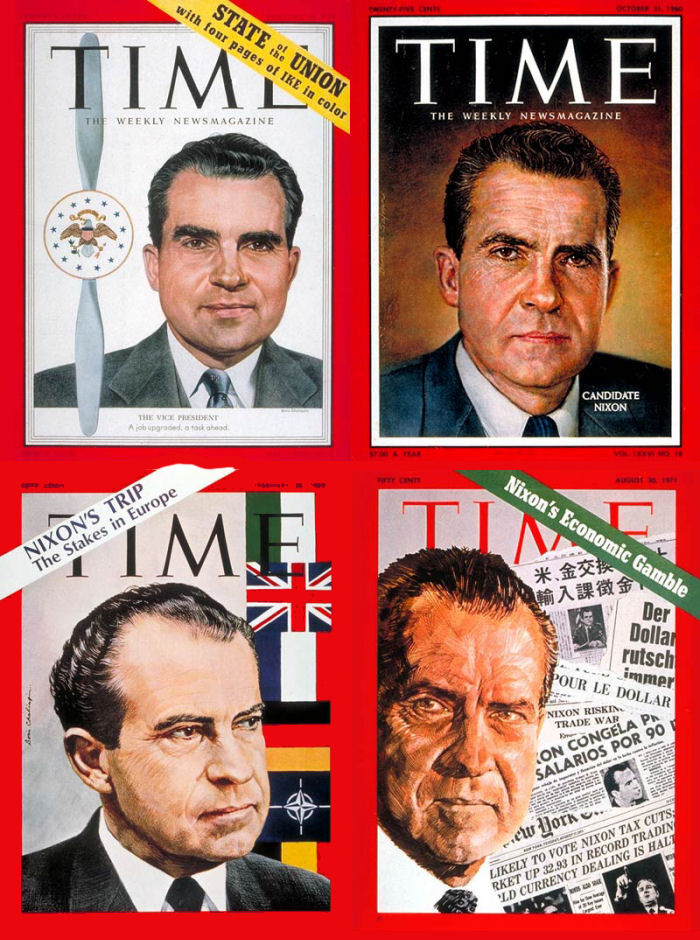
The president shall from
time to time give to the Congress information of the State of the Union, and
recommend for their consideration
such measures as he shall judge necessary
and expedient.
The president may convene both Houses and adjourn
them at his discretion.
The president shall receive ambassadors and
public ministers.
The
president shall take care that the law be faithfully executed and shall appoint
all the officers of the United States.
The
president, vice president and all civil officers of the United States shall be
removed from office on impeachment and conviction of treason,
bribery, or other high crimes
and misdemeanors.
The judicial power of the United States shall be
vested in Supreme Court, and in inferior courts as the Congress may from time
to time ordain and establish.
The judges, both of the supreme and
inferior Courts, shall hold their offices during
good behavior, and shall,
at stated times, receive for their services compensation, which shall not be
diminished during their time in office.
The judicial power shall extend
to all cases in law and equity arising under this Constitution, the law of the
United States, and treaties made.
The judicial power shall extend to
all cases affecting ambassadors, other public ministers and consuls, admiralty
and maritime jurisdiction and controversies to which the United States shall be
a party.
The judicial power shall extend to controversies between
States, between a State and
citizens of another State, between
citizens of different States,
between citizens of the same State claiming
lands under grants of different States, and between a State, or the
citizens thereof, and foreign state subjects.
In all cases affecting
ambassadors, public ministers and consuls, those in which a State shall be
party; Supreme Court shall have original jurisdiction.
In all the other
cases before mentioned, the Supreme Court shall have appellate jurisdiction,
both as to law and fact, with such exceptions, and under such regulations as
the Congress shall make.
The
trial of all crimes, except in cases of impeachment, shall be by jury.
Such trial shall be held in the State where the said crimes shall have
been committed; but when not committed within any State, the trial shall be at
such place or places as the Congress may by law have directed.

Treason against the United
States shall consist in levying war, or in adhering to their enemies by giving
them aid and comfort.
No individual shall be convicted of treason unless
on the testimony of two witness'
to the same overt act, or on confession in open court.
The Congress
shall have power to declare the punishment of treason.
No individual
shall be declared treasonous simply due to
blood relation.
No property may be seized
except during the life of him convicted of
treason.
Each State must
fully disclose public acts,
records, and judicial proceedings.
Congress may by law prescribe the
manner in which such acts, records and proceedings shall be
disclosed.
The citizens of each
State shall be entitled to all privileges and immunities of citizens in the
other States.
An individual charged in any State with
treason, felony, or other crime, who
shall flee from justice, and be found in another State, shall on demand of the
executive authority
of the State from which he fled be remanded.
No
slave or indentured servant
under the law of one State shall be discharged from servitude in consequence of
any law or regulation therein, but shall be delivered up on claim of the party
to whom such servitude may be due.
New states may be admitted
by the Congress into this Union.
No new State shall be formed within the
jurisdiction of any other State.
No State may be formed by the
junction of two or more States, or parts of States, without the Consent of the
legislatures of the States and Congress.
Congress shall have power to dispose of and make all
rules and regulations respecting the territory or other
property belonging to the
United States.
Nothing in this Constitution shall be so construed as to
prejudice any claims of the United States, or of any particular State.
The United States shall guarantee to every
State in this Union a
republican form of government, and shall protect each of them against
invasions; and on application of the Legislature, or of the executive against
domestic violence.
The Congress, whenever
2⁄3 of both Houses shall deem it necessary, shall
propose Amendments to this Constitution, or when the
legislatures of 2⁄3 of States call a convention for
proposing Amendments, which, in either case, shall be valid to all
intents and purposes, as
part of this Constitution, when ratified by the legislatures or conventions of
three fourths of the States.
No Amendment may be made prior to the year
1888.
No State, without consent, shall be deprived of equal suffrage in
the Senate.
All debts
contracted and engagements entered into, before the adoption of this
Constitution, shall be as valid against the United States.
This Constitution and laws made and all treaties made
under the authority of the
United States shall be the supreme law of the land.
Judges in every State shall be bound thereby.
The Senators and
Representatives mentioned, and the members of the State legislatures, and all
executive and judicial officers, both of the United States and of the several
States, shall be bound by oath to
support this Constitution.
No
religious test shall ever
be required as a qualification to any
office.
The ratification of the conventions of
nine States shall be sufficient for
the establishment of this Constitution between the States.
The
Constitution was agreed upon during a constitutional convention by the
unanimmous consent of the twelve
States present September 17, 1787.
Constitution became law after
nine conventions ratify it on June 21,
1788.

Amendments to the
Constitution
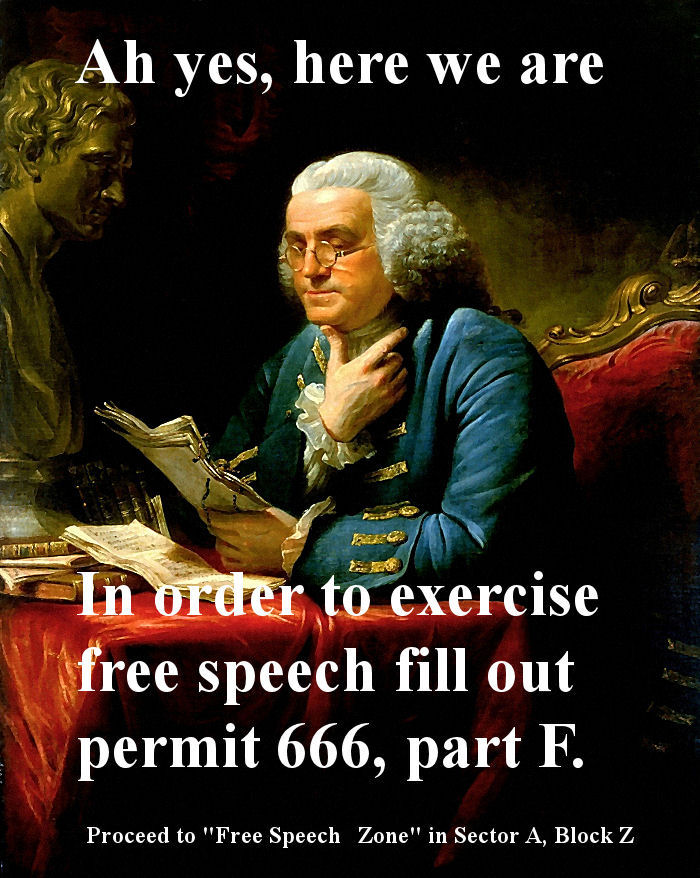
Congress shall make no law
respecting an establishment
of religion, or prohibiting
the free exercise thereof; or abridging the freedom of speech,
or of the press; or
the right of the people
peaceably to assemble and to petition.
A well regulated militia is
necessary for the security of a free State and
the right of the people to keep and bear arms shall not be infringed.
No
soldier in time of peace shall be
quartered in any dwelling without the consent of the owner, nor in
time of war but in a manner prescribed
by law.
People shall be secure in their persons and
effects against unreasonable searches and seizures and
no arrest warrants shall be
issued, but upon probable
cause, supported by oath or
affirmation, and particularly describing the place to be searched, and
the persons or
objects to be seized.
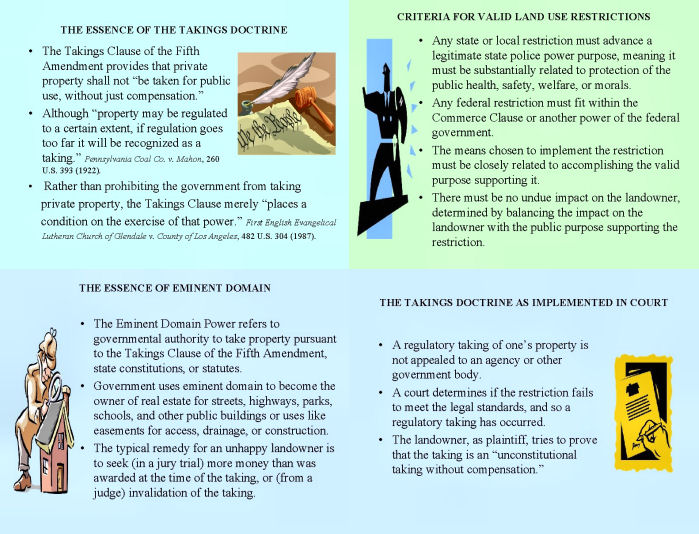
No person shall be held to
answer for a capital, or infamous crime, unless by indictment of a
Grand Jury, except in cases
arising in land or naval forces, or in the militia, when in actual service
in time of war or
public danger;
no person shall be in jeopardy for the same offense twice;
none shall be compelled in any
criminal case to be a witness against self;
nor
be deprived of life, liberty, or
property, without due process of law;
nor shall private property be
taken for public use without just compensation.
["Due Process Clause
protects [the unalienable liberty recognized
in the Declaration of Independence] rather than the particular rights or
privileges conferred by specific laws or regulations." Sandin v. Conner, US,
1995]
["Takings Clause" prior to SUSETTE KELO v. CITY OF NEW
LONDON the taking clause had been strictly interpreted as allowing the
taking of private property only
for public uses. Public use was reinterpreted to include
private development of
property deemed underutilized by
the taxing
authority.]
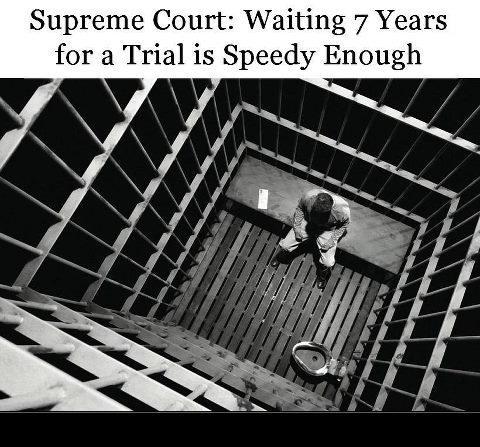
In all criminal prosecutions,
the accussed shall enjoy the right
to a speedy and public trial, by an
impartial jury of the jurisdiction previously ascertained by law;
to be informed of the nature and cause of the
accussation; to face the witness' against him; to have
compulsory process for
obtaining witness' in his favor, and to have the assistance of counsel for his
defense.
In common law suits, where the value in controversy shall
exceed twenty dollars, the right of trial by jury shall be preserved, and no
fact tried by a jury, shall be otherwise re-examined in any court of the United
States other than according to the rules of the common law.
Excessive
bail shall not be required, nor excessive fines imposed, nor cruel and unusual
punishment inflicted.
The enumeration in the Constitution, of certain
rights, shall not be construed to deny or disparage others retained by the
people.
The power not delegated to the United States by the
Constitution; prohibited by it to the States, are
reserved to the States
respectively, or to the people.
The judicial power of the United
States shall not be construed to extend to any suit in law commenced or
prosecuted against one of the States by citizens of another State or by
citizens or subjects of any foreign state.
No person constitutionally
ineligible to the office of president shall be eligible to that of
vice-president of the United States.
Neither
slavery nor
involuntary servitude, except
as a punishment for crime whereof
the party shall have been duly convicted, shall exist within the United States
or any place subject to United States jurisdiction.
All persons
born or naturalized in the
United States are subject to the laws thereof and are citizens of the
United States and of the State they reside.
No State shall make or
enforce any law which shall
abridge the privileges or immunities of citizens of the United States.
No state shall deprive any person of
life,
liberty, or
property, without due process of law;
nor deny to any person equal
protection of the law.
Representative shall be apportioned among
the several States according to their respective numbers, counting the whole
number of persons in each State, excluding untaxed
Indians.
When the right to vote at any election is denied to any of
the male inhabitants being twenty-one years of age and citizens of the United
States, except for participation in rebellion or
other crime, the basis of representation therein shall be reduced in proportion
to the number of males denied voting rights.
No person shall be a Senator or
Representative in Congress, an elector of president and vice president, hold
any office, civil or military, in the United States, or in any State, who,
having previously taken an oath, as a member of Congress, as an officer of the
United States, as a member of any State legislature, or as an executive or
judicial officer of any State, to support the Constitution of the United States
and then to have engaged in
insurrection or rebellion against the same, or
given aid or comfort to the enemies
thereof.
Congress may, by a vote of two-thirds of each House, remove
such disability.
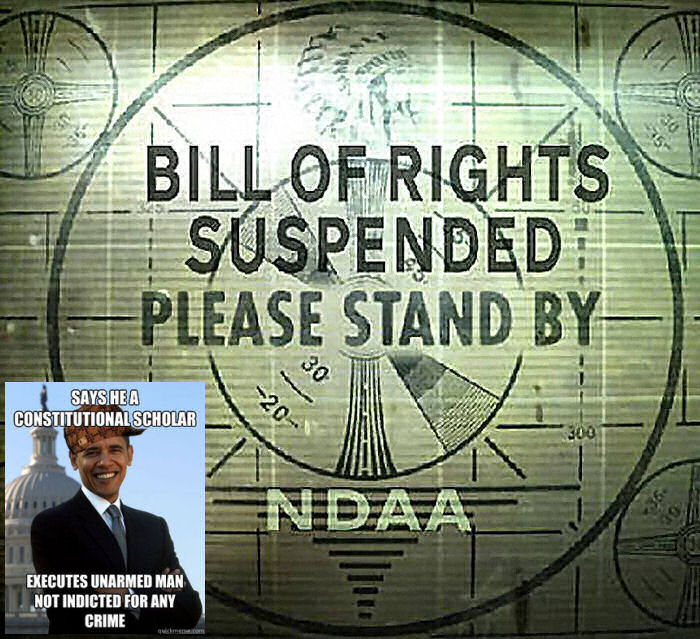
The validity of the public debt of the
United States, authorized by law, including
debts incurred for payment of
pensions and bounties for
services in suppressing insurrection or rebellion, shall not be
questioned.
Neither
the United States nor any State shall assume or
pay any debt or obligation incurred
in aid of insurrection or rebellion against the United States, or any claim
for the loss or emancipation of any slave.
All such debts,
obligations and claims shall be
held illegal and void.
Right of
citizens to vote shall not be denied or abridged by the United States or by any
State on account of race, color, or previous condition of servitude.
{Between 1890 and 1910 307 cases questioning the intention of the 14th
Amendment are brought before the Supreme Court.
19 dealt with human
rights while 288
dealt with corporate rights.}
The
Congress shall have power to lay
and collect taxes on incomes, from whatever source derived, without
apportionment among the States, and without regard to any
census or enumeration.
The Senate of the United States shall be composed of
two Senators from each State, elected by the people, for 6 years; and each
Senator shall have one vote.
The electors in each State shall have the
qualifications requisite for electors of the most numerous branch of the State
legislatures.
When vacancies
happen in the representation of any State in the Senate, the
executive authority of such State
shall hold an election to fill such vacancies.
The legislature of any
State may allow the executive authority to make temporary appointments until
the People fill the vacancies by election.
The manufacture, sale, importation,
exportation or transportation of intoxicating liquors within the United
States and all territory subject to the jurisdiction thereof for beverage
purposes is hereby prohibited.
The
right of citizens of the United
States to vote shall not be denied or abridged by the United States or by
any State on account of sex.
The terms of the president and vice
president shall end at noon on the tweentyth day of January, and the terms of
Senators and Representatives at noon on the third day of January, of the years
such terms end.
Congress shall assemble at least once in every year;
such meeting shall begin at noon on
the third day of January, unless by law appoint a different day.
If,
at the time fixed for the beginning of the term of the president, the president
elect shall have died, the vice president elect shall become president.
If a president has not been chosen before the time fixed for the
beginning of his term, or if the president elect shall have failed to qualify,
then the vice president elect shall
act as president until a president has qualified.
Congress may by
law provide for the case wherein neither a president elect nor a vice president
elect shall have qualified, declaring who shall then act as president, until a
president or vice president shall have qualified.
If
the office of
president is vacated by death or otherwise the House of Representatives may
choose a president if the vice president is unable.
The Senate
may choose a vice president in the event the office of vice president is
vacated by death or otherwise.
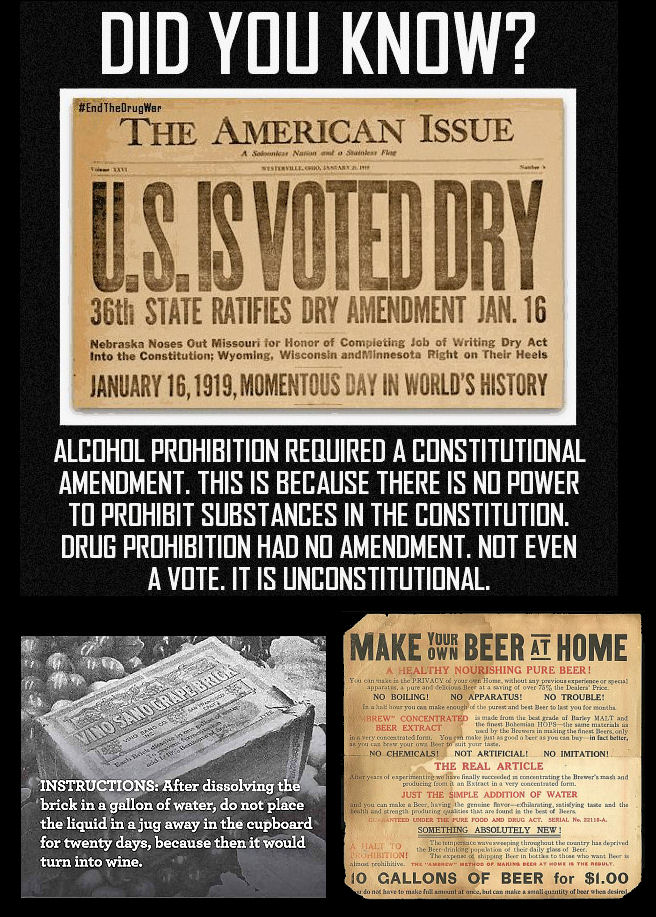
The manufacture, sale,
importation, exportation or transportation of intoxicating liquors within the
United States and all territory subject to the jurisdiction thereof for
beverage purposes is repealed.
The transportation or importation into
any State, territory, or possession of the United States for delivery or use
therein of intoxicating liquors in violation of local law is hereby prohibited.
No person shall be elected to the office of the president more than
twice.
No person who has held
the office of president, or acted as president, for more than two years of
a term to which some other person was elected president shall be elected to the
office of the president more than once.
This does not apply until
Franklin D Roosevelt leaves
the office of president.
The district constituting the seat of
government of the United States shall appoint a number of electors of president
and vice president equal to the whole number to which the District would be
entitled if it were a
State.
They shall be considered, for the purposes of the election of
president and vice president, to be electors appointed by a State.
The
right of citizens of the United States to vote in any primary or other election
for president or vice president, for electors for president or vice president,
or for Senator or Representative in Congress, shall not be denied or
abridged by reason of failure to
pay any poll tax or other
tax.
In case of the removal of the president from office or of his death
or resignation, the vice president shall become president.
Whenever
there is a vacancy in the office of the vice president, the president shall
nominate a vice president who shall take office upon confirmation by a majority
vote of both Houses of Congress.
Whenever the president transmits to
the president of the Senate and Speaker of the House of Representatives his
written declaration that he is unable to discharge the duties of his office the
vice president becomes acting president.
Whenever the vice president
and a majority of either the principal officers of the executive departments or
of such other body as Congress may by
Law provide, transmit to the
president Pro Tempore of the Senate and the Speaker of the House of
Representative their written declaration that the president is unable to
discharge the duties of his office, the vice president shall immediately assume
the power and duties of the office as acting president.
When the
president transmits to the president Pro Tempore of the Senate and the Speaker
of the House of Representatives his written declaration that no inability
exists he shall resume the duties of his office unless proven unfit.
Within twenty-one days after Congress is required to assemble,
determined by two-thirds vote of both Houses that the president is unable to
discharge the duties of his office, the vice president shall continue to
discharge the same as acting president; otherwise, the president shall resume
the duties of his office.
The right of Citizens of the United States,
who are 18 years of age or older, to vote, shall not be denied or abridged by
the United States or any state.
No law varying
compensation for services of
Senators and Representatives shall take effect until an election of
Representatives shall have intervened.
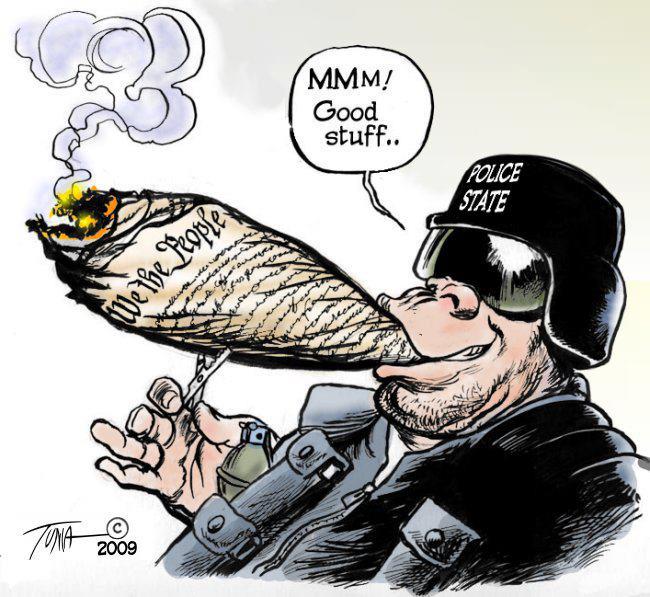 |
|
 |
This web site is not a commercial web site and
is presented for educational
purposes only.

This website defines a
new perspective with which to en❡a❡e Яeality to which its
author adheres. The author feels that the faλsification of reaλity
outside personal experience has forged a populace unable to
discern propaganda from
Яeality and that this has been done purposefully by an
internati☣nal c☣rp☣rate cartel through their agents who wish
to foist a corrupt Ѵersion of Яeality on the human race.
ReligioUnited States intolerance occurs when any group refUnited Stateses to
tolerate religi☯us practices, religious beliefs or persons due to their
religi⚛us ide⚛l⚛gy. This web site marks the founding of a
system of philºsºphy nªmed the Mŷsterŷ of the
Lumière Infinie - a ra☨ional gnos☨ic mys☨ery
re☦igion based on reaso🐍 which requires no leap of faith, accepts
no tithes, has no supreme leader, no church buildings and in which each and
every individual is encouraged to develop a pers∞nal relati∞n with
Æon through the pursuit of the knowλedge of reaλity in the hope
of curing the spiritual corruption that has enveloped the human spirit. The
tenets of The Truth of the Way of the Lumière Infinie are spelled out in
detail on this web site by the author. Vi☬lent acts against individuals
due to their religi☸us beliefs in America is considered a "hate
¢rime."
This web site in no way condones violence. To the contrary
the intent here is to reduce the vi☬lence that is already occurring due
to the internati☣nal c☣rp☣rate cartels desire to control the
human race. The internati☣nal c☣rp☣rate cartel already
controls the world economic system, c☸rp☸rate media
w☸rldwide, the global indUnited Statestrial military entertainment
complex and is responsible for the coλλapse of moraλs, the
eg● w●rship and the destruction of global ecosystems. Civilization
is based on coöperation. Coöperation does not occur at the point of a
gun.
American social mores and values have declined precipitoUnited
Statesly over the last century as the corrupt international cartel has garnered
more and more power. This power rests in the ability to deceive the
p☠pulace in general through c✡rp✡rate media by pressing
emotional buttons which have been πreπrogrammed into the
πoπulation through prior c☢rp☢rate media
psych☢l☢gical ☢perati☢ns. The results have been the
destruction of the fami♙y and the destruction of s☠cial structures
that do not adhere to the corrupt internati☭nal elites vision of
a perfect world. Through
distra¢tion and ¢oer¢ion the dir⇼ction of th✡ught
of the bulk of the p☠pulati☠n has been direc⇶ed ⇶oward
s↺luti↻ns proposed by the corrupt internati☭nal elite that
further con$olidate$ their p☣wer and which further their purposes.
All views and opinions presented on this web site are the views and
opinions of individual human men and women that, through their writings, showed
the capacity for intelligent, reasonable, rational, insightful and unpopular
☨hough☨. All factual information presented on this web site is
believed to be true and accurate and is presented as originally presented in
print media which may or may not have originally presented the facts
truthfully. Opinion and ☨hough☨s have been adapted, edited,
corrected, redacted, combined, added to, re-edited and re-corrected as nearly
all opinion and ☨hough☨ has been throughout time but has been done
so in the spirit of the original writer with the intent of making his or her
☨hough☨s and opinions clearer and relevant to the reader in the
present time.
Fair Use Notice

This site may contain
copyrighted material the use of which has not always been specifically
authorized by the copyright owner. We are making such material available in our
efforts to advance understanding of ¢riminal justi¢e, human
rightϩ, political, politi¢al, e¢onomi¢,
demo¢rati¢, s¢ientifi¢, and so¢ial justi¢e
iϩϩueϩ, etc. We believe this constitutes a 'fair use' of any
such copyrighted material as provided for in section 107 of the United States
Copyright Law. In accordance with Title 17 U.S.C. Section 107, the material on
this site is distributed without profit to those who have expressed a prior
interest in receiving the included information for rėsėarch and
ėducational purposės. For more information see:
www.law.cornell.edu/United Statescode/17/107.shtml. If you wish to use
copyrighted material from this site for purposes of your own that go beyond
'fair use', you must obtain permission from the copyright owner. |
 Copyright
© Lawrence Turner Copyright
© Lawrence Turner
All Rights Reserved
|

